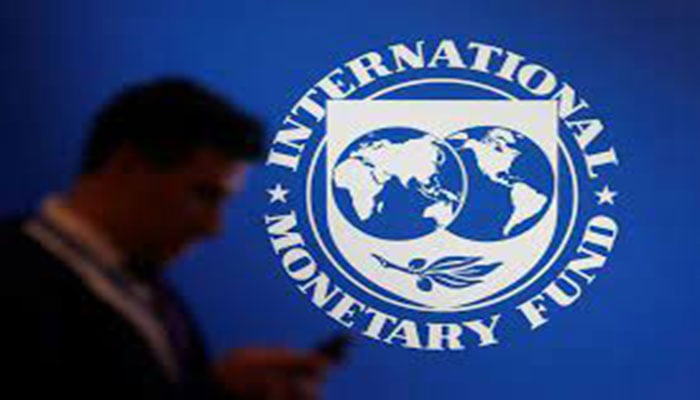Targeted subsidy for electricity consumers: Govt will have to seek IMF waiver on structural benchmark
ISLAMABAD: The government will have to seek a waiver from the IMF on structural benchmark if Islamabad fails to place targeted subsidy for electricity consumers in the budget 2021-22.
Although the government plans to allocate Rs 500 billion for the subsidy of all kinds for the upcoming budget including power sector, cheap gas and electricity supply to export-oriented sectors, there will be subsidy on wheat, sugar, PASSCO, Utility Stores Corporation (USC), fertilizer and many other sectors.
The government is all set to introduce the concept of targeted subsidies from the next budget but its implementation on the electricity sector cannot be implemented in the first phase because identification of beneficiaries is a complex and difficult exercise that has not yet been accomplished.
“We will kick-start targeted subsidies for commodities from the next budget in the first phase as it will be provided to poor segments on flour and sugar,” said a top government official on Saturday.
Pakistani authorities are making efforts to convince the IMF that there would be a tariff hike till October 2021. The power sector subsidy was expected to touch Rs 431-450 billion for the outgoing fiscal year, but the government plans to keep it close to Rs 360 to Rs 380 billion. It will depend upon how long the government did not implement the tariff hike in the electricity sector.
Pakistan and the IMF had agreed that existing subsidies covering 93 per cent of domestic users represent a heavy budgetary burden and necessitate high tariffs for a narrow group of unsubsidized consumers. Thus, they have embarked on a reform path, supported by the World Bank, to improve the fairness and efficiency of the system. As a first step, the authorities started to reduce regressing and retarget cross-subsidies by restructuring the tariff system in March 2021 (PA subpart) through an adjusted eligibility criterion for the subsidized slabs (based on maximum usage in the previous 12 months) and an expansion of the lifeline tariff for small consumers.
They plan to finalize this cross-subsidy reform in June, and ahead of the FY 2022 budget.
Thereafter, they agreed to shift their efforts to rationalize subsidies by improving targeting, including household and agricultural sectors, while protecting the most vulnerable. Pakistani authorities re-negotiated purchasing power arrangements (PPAs) with IPPs. The authorities and more than 45 private IPPs signed formal agreements on renegotiated PPA terms that will result in cost savings of about 1.8 per cent of GDP over the next two decades of the remaining life of these IPPs.
In particular, the agreements will reduce capacity payments by lowering and converting into domestic currency the guaranteed return on equity and sharing excess returns on operational and maintenance expenses from contractual efficiencies. In return, the government agreed to settle outstanding arrears to these IPPs, of which it scheduled to pay two fifth by end-May 2021 and the remainder for August 2021.
In this vein, the stock of CPPA-G payables to power producers will decline through a payment of up to Rs 180 billion by end-May 2021 (new SB for end-May 2021). The authorities are also actively seeking similar renegotiations with other groups of power producers (including the state-owned).
They plan to finalize this cross-subsidy reform in June, and ahead of the FY 2022 budget. Thereafter, they agreed to shift their efforts to rationalize subsidies by improving targeting, including household and agricultural sectors, while protecting the most vulnerable.
If such structural benchmark were missed, Pakistan would have to seek a formal waiver on completion of sixth review under $6 billion Extended Fund Facility (EFF) after announcement of budget 2021-22.
-
 AI Film School Trains Hollywood’s Next Generation Of Filmmakers
AI Film School Trains Hollywood’s Next Generation Of Filmmakers -
 Royal Expert Claims Meghan Markle Is 'running Out Of Friends'
Royal Expert Claims Meghan Markle Is 'running Out Of Friends' -
 Bruno Mars' Valentine's Day Surprise Labelled 'classy Promo Move'
Bruno Mars' Valentine's Day Surprise Labelled 'classy Promo Move' -
 Ed Sheeran Shares His Trick Of Turning Bad Memories Into Happy Ones
Ed Sheeran Shares His Trick Of Turning Bad Memories Into Happy Ones -
 Teyana Taylor Reflects On Her Friendship With Julia Roberts
Teyana Taylor Reflects On Her Friendship With Julia Roberts -
 Bright Green Comet C/2024 E1 Nears Closest Approach Before Leaving Solar System
Bright Green Comet C/2024 E1 Nears Closest Approach Before Leaving Solar System -
 Meghan Markle Warns Prince Harry As Royal Family Lands In 'biggest Crises' Since Death Of Princess Diana
Meghan Markle Warns Prince Harry As Royal Family Lands In 'biggest Crises' Since Death Of Princess Diana -
 Elon Musk Weighs Parenthood Against AI Boom, Sparking Public Debate
Elon Musk Weighs Parenthood Against AI Boom, Sparking Public Debate -
 'Elderly' Nanny Arrested By ICE Outside Employer's Home, Freed After Judge's Order
'Elderly' Nanny Arrested By ICE Outside Employer's Home, Freed After Judge's Order -
 Keke Palmer On Managing Growing Career With 2-year-old Son: 'It's A Lot'
Keke Palmer On Managing Growing Career With 2-year-old Son: 'It's A Lot' -
 Key Details From Germany's Multimillion-euro Heist Revealed
Key Details From Germany's Multimillion-euro Heist Revealed -
 David E. Kelley Breaks Vow To Cast Wife Michelle Pfeiffer In 'Margo's Got Money Troubles'
David E. Kelley Breaks Vow To Cast Wife Michelle Pfeiffer In 'Margo's Got Money Troubles' -
 AI-powered Police Robots To Fight Crime By 2028: Report
AI-powered Police Robots To Fight Crime By 2028: Report -
 Everything We Know About Jessie J's Breast Cancer Journey
Everything We Know About Jessie J's Breast Cancer Journey -
 Winter Olympics 2026: What To Watch In Men’s Hockey Today
Winter Olympics 2026: What To Watch In Men’s Hockey Today -
 Winnie Harlow Breaks Vitiligo Stereotypes: 'I'm Not A Sufferer'
Winnie Harlow Breaks Vitiligo Stereotypes: 'I'm Not A Sufferer'




